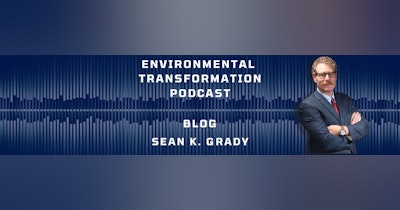The Securities and Exchange Commission (SEC) recently published its proposed rule for Climate Change Disclosures that will require companies to report their Greenhouse Gas (GHG) emissions produced from both their operations and their Supply Chain. This new proposed requirement will change the way companies are tracking and managing their Direct and In-Direct emissions.
The proposed rules would require information about a company’s climate-related risks that are reasonably likely to have a material impact on its business, results of operations, or financial condition. The required information about climate-related risks would also include disclosure of a company’s greenhouse gas emissions, which have become a commonly used metric to assess a company’s exposure to such risks. In addition, under the proposed rules, certain climate-related financial metrics would be required in a company’s audited financial statements.
This new rule will standardize how the industry will report their Climate Risks and provide reporting consistency on Environmental Social Governance (ESG) performance. There has been increasing pressure from financial investors who want to invest in companies that share their values in protecting the environment and who are reducing GHG emissions that affect climate change. By having a uniform reporting process, investors would be able to compare a company’s performance against others in the industry and help them decide who to invest in.
Elements of the proposed rule would require companies to report on their Climate Risks that include:
- GHG emission disclosures from Scope 1 and 2 emissions produced by operations
- Scope 3 GHG emissions of their supply chain, consumption of raw materials, vehicle emissions by company, suppliers, and the disposal of products and wastes for large companies
- Financial Risks and Costs associated with moving away from fossil fuels
- Affects from storms and drought impacting or disrupting business operations
- Disclosure of Targets the company has set (ie. Net Zero by 2050) including preparation of transition plans to manage climate risks, and how they propose to meet climate goals and measure progress being made
What does this mean? Companies will now need to establish dedicated staff to support ESG and Sustainability reporting requirements which means career opportunities for professionals in the industry. This will also provide opportunities for service providers to help companies develop their ESG Strategies. There will also be a huge need for digital technologies that can track GHG and climate related information for reporting purposes.
The International Labour Organization (ILO) estimates that there will be 24 million Green jobs created to support ESG initiatives and the Green Economy by 2030. This means there will be demand for skilled labor and for those who want to skill up and become Sustainability Professionals, ESG Business Managers, Green industry workers, and service providers wanting to help industry meet these new SEC Climate Change Disclosure requirements.
It’s time for an Environmental Transformation!
Sean K Grady
Executive Director, Producer, Host
The Environmental Transformation Podcast
www.seankgrady.com



